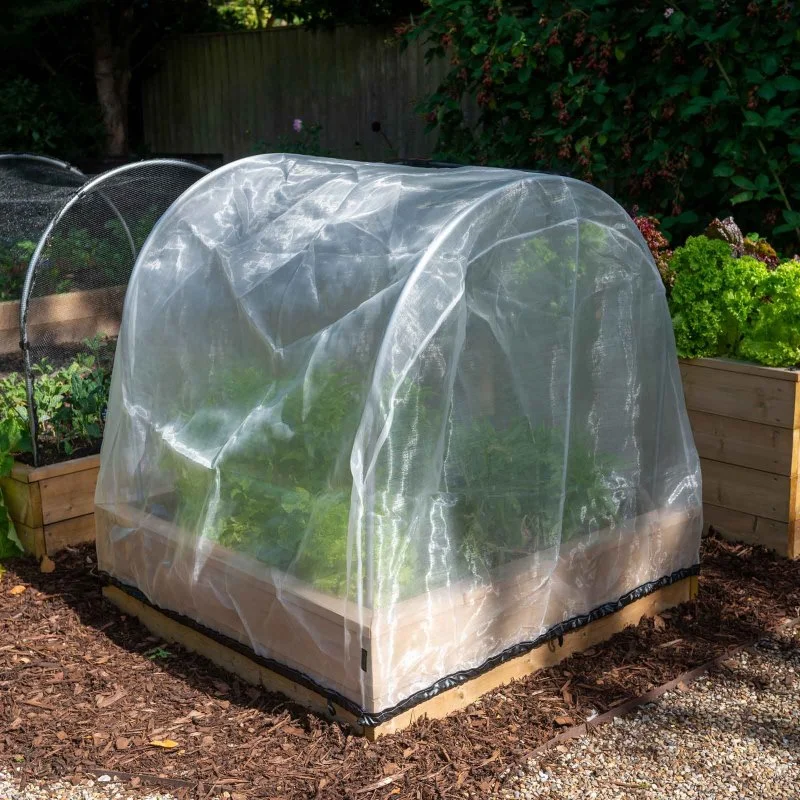
- 1- Why Protect Seasonal Flower Beds from Insects?
- 2- Common Insects Attacking Flower Beds
- 3- Preventive Measures to Keep Insects Away
- 4- Organic Solutions for Insect Control
- 5- Case Study: Effective Insect Control for Flower Beds
1. Why Protect Seasonal Flower Beds from Insects?
Seasonal flower beds are a source of beauty and tranquility, but they are also highly vulnerable to insect infestations. Insects like aphids, spider mites, and beetles can wreak havoc on delicate flowers, stunting growth and damaging plant health. Protecting your flower beds from these pests is essential not only for the aesthetic value of your garden but also for the health of the ecosystem. By taking proactive steps, you can maintain the vitality and vibrancy of your seasonal flowers all season long.

Upstate NY Wildlife Control
BaldwinsvilleOnondaga CountyNew York
8848 Oswego Rd, Baldwinsville, NY 13027, USA
2. Common Insects Attacking Flower Beds
Several types of insects are particularly harmful to flower beds. Some of the most common include:
- Aphids: These tiny, sap-sucking insects can quickly multiply and cause leaves to yellow and distort.
- Japanese Beetles: Known for their appetite for flowers, these beetles can decimate plants, leaving behind ragged leaves and destroyed blooms.
- Spider Mites: These pests are difficult to spot but can cause significant damage by piercing plant cells and draining vital nutrients.
- Slugs and Snails: These nocturnal pests leave unsightly holes in flower petals and leaves.
Understanding which pests are attacking your flower beds is crucial for implementing effective control measures. Early detection can save your plants from irreversible damage.

Glen Environmental - Yonkers Pest Control
YonkersWestchester CountyNew York
40 Richfield Ave, Yonkers, NY 10704, USA
3. Preventive Measures to Keep Insects Away
Prevention is key when it comes to insect control. Here are a few tried-and-tested methods to protect your flower beds:
- Regular Maintenance: Keep your flower beds clean and free of debris, as insects love to hide in decaying plant matter. Regularly remove fallen leaves and dead plants.
- Companion Planting: Certain plants, such as marigolds and lavender, naturally repel insects. Planting these around your flowers can act as a natural barrier.
- Neem Oil: This organic pesticide is effective in repelling a wide variety of garden pests, including aphids and beetles, without harming beneficial insects.
- Proper Watering: Overwatering or underwatering can stress your plants, making them more susceptible to insect damage. Ensure that your plants receive the right amount of water.
Taking these simple steps will help deter insects from infesting your flower beds while promoting the health of your plants.
4. Organic Solutions for Insect Control
If you prefer to avoid chemical pesticides, there are several organic methods to control pests in your flower beds:
- Insecticidal Soap: A safe and effective option, insecticidal soap targets soft-bodied insects like aphids and spider mites. It’s easy to apply and won’t harm your plants.
- Diatomaceous Earth: This fine powder is harmless to humans and pets but deadly to insects. It works by dehydrating insects when they come into contact with it.
- Essential Oils: Certain essential oils, like peppermint, rosemary, and citronella, can act as natural insect repellents. Mix a few drops with water and spray it on your plants to keep pests at bay.
- Beneficial Insects: Introducing natural predators like ladybugs and lacewings to your garden can help control pests naturally. These insects feed on harmful bugs like aphids and mealybugs.
Organic solutions not only keep your flower beds free from harmful pests but also ensure the safety of your family and the environment.
5. Case Study: Effective Insect Control for Flower Beds
A local gardener, Sarah, faced a significant issue with aphids in her flower garden last spring. She found that the aphids were causing the leaves of her roses to curl and yellow. After researching natural remedies, she decided to use a combination of neem oil and ladybugs. Within weeks, the aphid population significantly decreased, and her roses began to thrive again. This case highlights the power of using organic insect control methods while maintaining a healthy, sustainable garden.
By incorporating pest control strategies like these, you can ensure that your seasonal flower beds remain beautiful and healthy throughout the growing season.
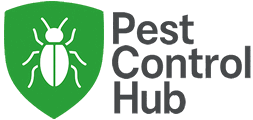
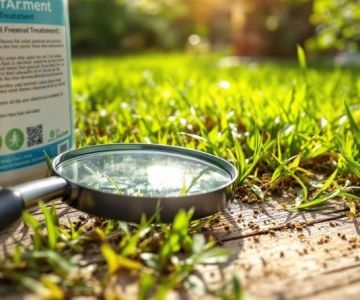
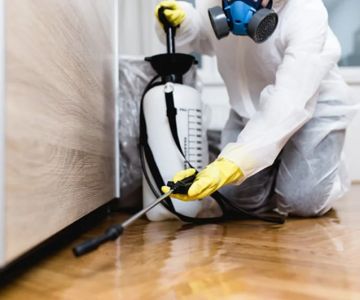
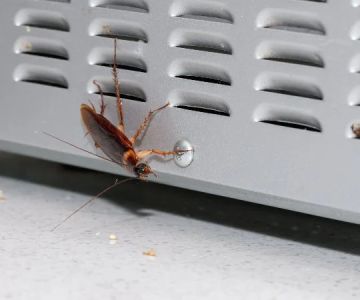
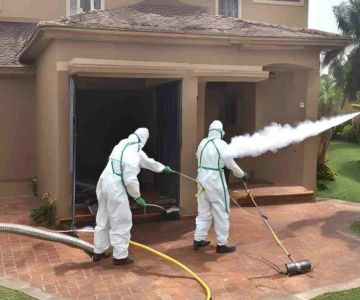
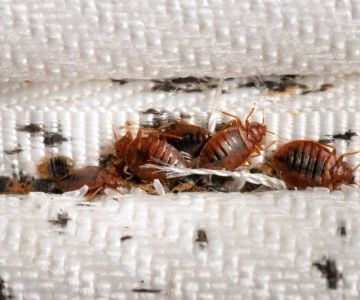
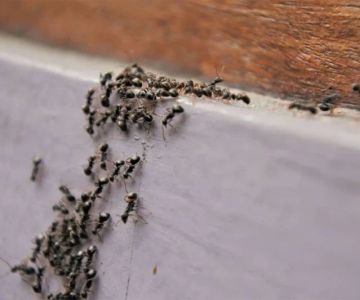
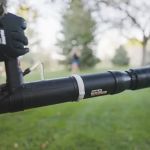 Mosquito Shield of North Attleboro4.0 (183 reviews)
Mosquito Shield of North Attleboro4.0 (183 reviews) General Exterminating5.0 (24 reviews)
General Exterminating5.0 (24 reviews)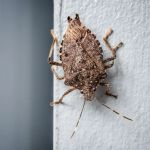 OPC Pest Services4.0 (191 reviews)
OPC Pest Services4.0 (191 reviews) A-1 Bed Bug Heat Remediation5.0 (26 reviews)
A-1 Bed Bug Heat Remediation5.0 (26 reviews) Brown Exterminating5.0 (1 reviews)
Brown Exterminating5.0 (1 reviews)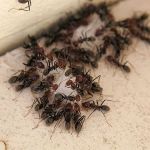 Black Diamond Pest Control4.0 (260 reviews)
Black Diamond Pest Control4.0 (260 reviews)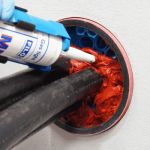 How to Seal Entry Points Around Piping
How to Seal Entry Points Around Piping How to Keep Crawlspaces Ventilated & Pest-Free
How to Keep Crawlspaces Ventilated & Pest-Free How to Safely Use Fumigation Methods: A Comprehensive Guide for Homeowners
How to Safely Use Fumigation Methods: A Comprehensive Guide for Homeowners How to Deal With Pest Issues Near Pools
How to Deal With Pest Issues Near Pools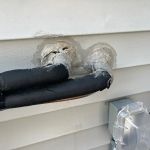 How to Seal Entry Points Around Piping: Effective Methods for Home Protection
How to Seal Entry Points Around Piping: Effective Methods for Home Protection Natural Pest Control Methods That Are Safe for Kids and Pets
Natural Pest Control Methods That Are Safe for Kids and Pets